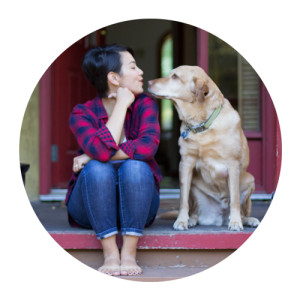We leave so little time to nurture and be nurtured.
This morning, I woke up in the Lake District, light filling my bedroom despite the early hour; Byron, my Brittany-Collie cross was ready to get outside and explore. And rightfully so as the landscapes begs to be awake. A rare pocket of sunshine illuminated the estuary of the River Duddon as the newly born lambs grazed with their mommas in the field below.
This morning, like most mornings, I feel no better off than a lamb: a lamb who needs nurturing, protecting, and guiding. They can be so cheeky as we observed yesterday, while driving the Yorkshire Dales and coming across some lambs who had jumped through the fence to feast on the untouched grass on the side of the road. The nature of lambs explains the endless criss-cross of stone walls that cover the northern part of England – there is no jumping over or through these walls that have done their job for hundreds of years.
The Bible is full of sheep metaphors because Jesus is called the Good Shepherd and we will forever be his lost sheep. I feel that this imagery is often is lost on Canadians. In the UK, you don’t have to go very far before you find yourself surrounded by fields spotted with sheep, but in Canada, we don’t have sheep farms. There are too many predators like bears, wolves, coyotes, mountain lions, the list goes on. Trying to protect the sheep would be futile. That being said, even without the predators, sheep in the UK are still in desperate need of a shepherd, and it is quite a sight to see a herd of the sheep run when the shepherd calls them. I can recall, on one of our trips to the Peak District, whilst rambling near Edale, we found ourselves seeking shelter at the base of a tree while a herd of sheep stampeded towards the voice of their shepherd.
And yet, I think that as we grow older, we long to grow out of our sheepish nature or shear it off like last season’s wool. We take down the stone walls and allow ourselves to roam free, explore, and take chances, which isn’t always bad in and of itself, but still requires boundaries. We no longer respond to the voice of the shepherd and don’t recognise the predators around us. We long for independence and yet, I am realising more and more that independence is not as enticing as it once was and that, actually, we were made for interdependence: dependence on each other, and dependence on God, as our shepherd.
To nurture means to care for and protect and we are best nurtured in interdependent community. We nurture ourselves; we nurture one another, and we are nurtured by God. These next few days, while we take some time out in the Lake District, my hope is that not only will I be nurtured but that I will be able to nurture my family, caring for our soul health and healing the rug burn that comes from going so hard, for so long. I want to rebuild walls of routine and rhythms that ground us and keep the predators out and the sheep protected, and I want to bask in the Shepherd’s love.
“Truly, truly, I say to you, I am the door of the sheep. 8 All who came before me are thieves and robbers, but the sheep did not listen to them. 9 I am the door. If anyone enters by me, he will be saved and will go in and out and find pasture… 14 I am the good shepherd. I know my own and my own know me, 15 just as the Father knows me and I know the Father; and I lay down my life for the sheep.”
John 10:7-9, 14-15 (ESV)
This post is part of the 2021 Writing Challenge. This challenge is open to anyone and involves writing on one word a week for 52 weeks. Write for yourself or write for others but either way, please feel free to share by posting a link in the comments (if you’re posting on this week’s word) or post on social using the #2021writingchallenge and tagging me on Twitter or Instagram, or posting on my FB page so I can repost. Happy Writing!















Leave A Reply